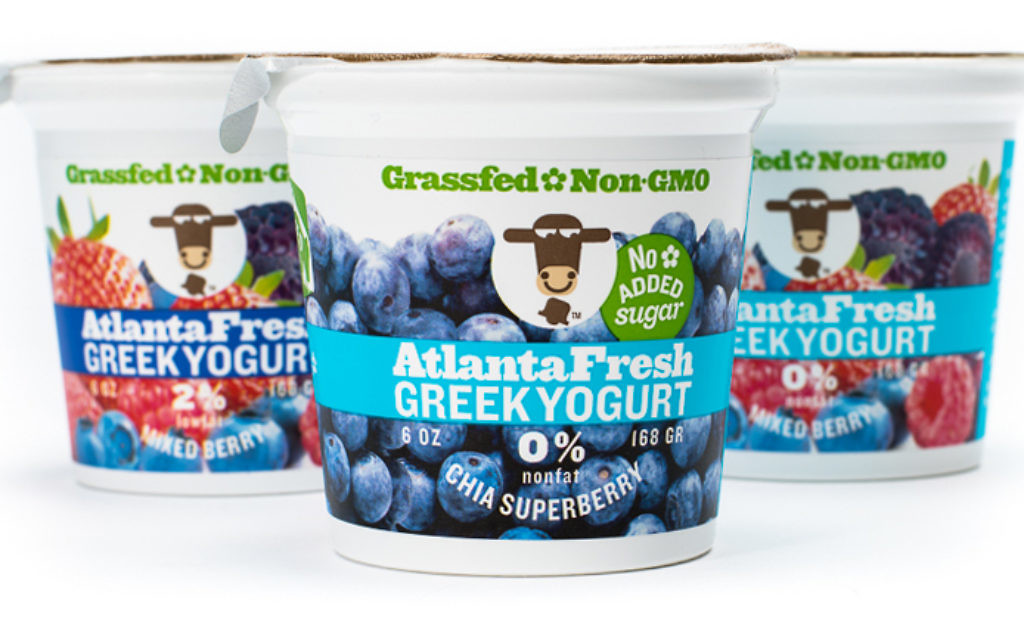Amazon’s Whole Foods Cuts Off Creamery
Whole Foods ended its eight year contract with AtlantaFresh Creamery this past September.
Jewish-owned AtlantaFresh Artisan Creamery has lost its best customer, Whole Foods, since Amazon closed its purchase of the eco-friendly grocery chain in August.
Owner Ron Marks founded AtlantaFresh in September 2009. The company produces organic yogurts and fresh cheeses with milk from cows that are 100 percent grass-fed at Newberry Farm in Waynesboro.
Marks said AtlantaFresh’s dairy products are certified to be free of genetically modified organisms and were among the first to be locally produced.
Get The AJT Newsletter by email and never miss our top stories Free Sign Up
“I really felt that there was an unmet need in the Atlanta market for very high-quality Greek yogurt and freshly produced cheeses,” Marks said.
Whole Foods agreed, bringing Marks’ company into a program that supported small, local food producers and helping AtlantaFresh purchase equipment for a rapid expansion of its capacity. AtlantaFresh’s products were plentiful in Whole Foods stores in Georgia and the Southeast.
But in September, after Amazon took over Whole Foods, the company ended a seven-year contract to stock the creamery’s yogurt and other dairy products. Tomorrow’s News Today was first to report the contract’s end.
“We were initially happy about the agreement,” Marks said. Whole Foods not only made AtlantaFresh a supplier, but also provided a loan that enabled the creamery to expand and sell its yogurt outside Georgia through a dairy license that allowed the business to cross state lines. The end of the seven-year contract means that Whole Foods is forgiving the loan it made to AtlantaFresh.
“They became our largest customer fairly early on, and we became ecstatic about the relationship, as they were very strong supporters of the local food movement.” Marks said.
AtlantaFresh was distributed in 180 Whole Foods stores in 20 states, but not anymore.
Marks said Whole Foods indicated it will no longer conduct business with AtlantaFresh because its products do not meet the chain’s standards for profitability.
The senior management team at Whole Foods also has been overhauled since the Amazon purchase.
“It has produced some struggles and some opportunities for us, but we are working hard to make those lemons into lemonade,” Marks said.
Though the creamery never diversified its customer base, it now has garnered support from other grocery retailers, such as Alon’s and Savi markets.
Trying to bounce back quickly, Marks said he is in discussions with Publix to increase distribution from 30 stores to 400 by mid-March and will start selling in about 120 Kroger supermarkets within two weeks.
“Although we found out that we lost our distribution method, we also discovered that we have lots of loyal customers who are looking to find us in other places, and we are looking for alternate ways to meet that demand,” Marks said.
He said AtlantaFresh’s yogurts and cheeses will soon be available through the PeachDish delivery service, which will enable the creamery to ship its products anywhere in the country overnight.
Customers also can buy AtlantaFresh products at the creamery at 6679 Peachtree Industrial Blvd. in Norcross. The facility has been kosher the past five years under Atlanta Kosher Commission supervision.
AtlantaFresh hopes to expand its product line to include Greek yogurt cream cheese and Greek frozen yogurt.
“We are heartened by the support of loyal customers we have built relationships with over the years,” Marks said. “We are also very encouraged that other major chains, such as Publix and Kroger, see a good opportunity to acquire our as well as Whole Foods customers into their supermarkets.”






comments